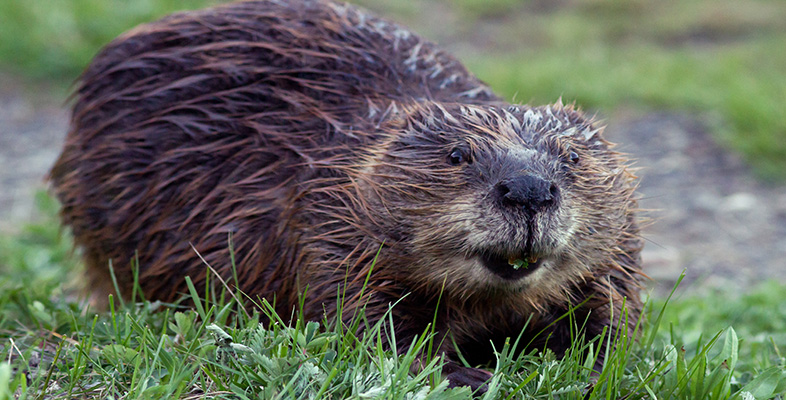3.3 Variation
Fossil rodents are first found in rocks that date from around 65 million years ago (from the Eocene) and are thought to have evolved from insectivore/omnivore-type mammals that lived 100 million years ago (in the Cretaceous period). To say that they evolved from simply means that there probably is a direct line of descent but that the descendants have changed from their forebears. One of the most significant ways that evolutionary change can be brought about is by a process known as natural selection. This theory was first proposed by Charles Darwin in his book The Origin of Species in 1859. Darwin's book set out to show two things: that modern species had evolved from ancestral stock rather than having been divinely created, and that natural selection provides a mechanism whereby such evolution could have taken place. This theory has led many people to assume that natural selection is the only mechanism bringing about evolution. This assumption is not true. Random events, such as the eruption of a volcano or the strike of a meteorite, have made major impacts on the course of evolution. These momentous events take their place alongside less spectacular processes, such as genetic drift. Genetic drift occurs when, by chance, the frequencies of genes change in a population. But natural selection is the principal mechanism that can account for the extraordinary adaptations between prey and predators.
Many of Darwin's readers would have been familiar with the idea of selection because plant and animal breeders select individuals with desirable characteristics to be the parents of the next generation: strong, tough horses to pull the plough; sheep with fine-quality wool; high-yielding potato plants or attractive ornamental flowers. They then breed only from stock of the best quality. How could such a mechanism work in the wild? Darwin showed that there are a number of necessary conditions, of which the first is that there is inherited variation between individuals - even closely related animals living together.
SAQ 10
Take any mammal species with which you are familiar and list the kinds of variation that you see between individuals. (Don't forget that we are mammals too!)
Answer
I hope you have come up with a long list! If you thought of a domesticated species like dogs, cats or horses, you will have been aware of the artificial selection that has been applied (e.g. for body size and shape, coat length or colour). Your list will probably start with these anatomical features, but I expect you also thought of a number of physiological differences as evidenced, for example, by some seeming to need more food than others and some being more prone to disease than others. You might also have listed some psychological differences; some bold, others nervous, and so on. Next time you watch a Life of Mammals TV sequence, look out for individual differences. Probably most obvious are the fight sequences (see 'Chisellers' from 32.00-33.40), but watch the reactions of the baby Belding's ground squirrels diving into the burrow when the alarm is sounded. Some scampered off with alacrity; others were slower, taking a look around first. Which is the more adaptive response? A moot point!
So we can reflect that the individuals of a modern species are not all exactly the same and yet we might have suggested that they were all well adapted to their environment. For example, squirrels all have teeth that can chisel into nuts. Perhaps the differences are in other characteristics, ones that are not particularly important? Or maybe there are small differences between individuals in the quality of their teeth. My dentist used to tell my children that they were lucky to have inherited their father's strong teeth, and not my crumbly ones; maybe squirrels' teeth also vary in the hardness of the enamel! Darwin showed that even small, seemingly insignificant differences can become important when not all of the individuals can survive to breed - in other words, when there is competition between individuals for some of the resources necessary for their existence.
